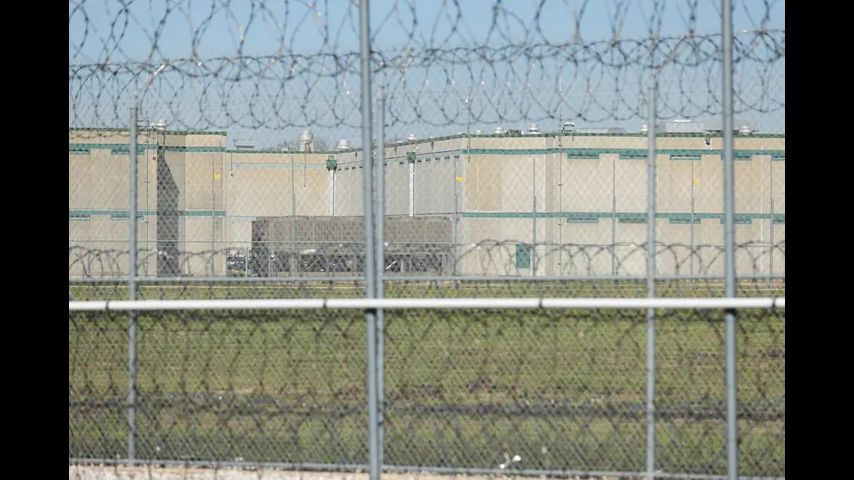Texas should close prisons and jails with staffing challenges, state oversight panel says
Sign up for The Brief, The Texas Tribune’s daily newsletter that keeps readers up to speed on the most essential Texas news.
The Texas agency that manages the state’s prisons and jails should close correctional facilities with staffing challenges and do a better job at supervising inmate rehabilitation programs, the Texas Sunset Advisory Commission said Wednesday.
The commission, which reviews the performance of Texas agencies, voted Wednesday to recommend the Legislature pass bills addressing multiple issues at the Texas Department of Criminal Justice and several other state agencies. Though the commission discussed most recommendations in December, it made them official Wednesday.
The recommendations come after a report in September found that up to 70% of guard positions were unfilled at some Texas prisons and that TDCJ staff has a 26% turnover rate. The report found that low staffing figures put both prison staff and inmates at risk. In response, the commission is asking that the TDCJ “identify root causes of turnover” and improve employee access to career advancement resources within the agency.
The September report also found that the state isn’t fully tracking the use or effectiveness of rehabilitation and reentry programs for inmates, which cost taxpayers millions of dollars. To address this, TDCJ must evaluate the programs every other year, the commission said.
Marc Levin, chief policy counsel at the nonpartisan think tank Council on Criminal Justice, said the commission’s recommendations underline “what kind of facilities make sense” for the state to continue having and implementing them would be a step toward more humane prisons.
TDCJ spokesperson Amanda Hernandez told The Texas Tribune in August the agency was undergoing a “culture shift” to emphasize rehabilitation of inmates over punishment.
The commission is also asking the Windham School District, which offers educational programs to incarcerated Texans, to consider partnerships with the state’s community colleges and Texas State Technical College to expand its postsecondary career and technical education opportunities. The TDCJ must also work with Windham to create a “strategic plan for rehabilitation and reentry programs,” the commission said.
[Inside the only college class in Texas to help prepare inmates for life after prison]
The commission’s recommendations also include efforts to digitize or automize certain processes that typically involve paper, such as allowing inmates to view their institutional or disciplinary records on tablets. Parole status letters should also be digitized to be viewed on tablets, the commission said.
Another recommendation aims to provide some relief for the TDCJ by ending a requirement that orders the agency to keep some state jails that were created to keep low-level offenders out of overcrowded prisons and offer rehabilitative services. But since then, criminal justice advocates and lawmakers have criticized the facilities for not fulfilling their original promise and instead often being used as a temporary stop for inmates on their way to state prisons.
“With this statutory change, TDCJ will be able to more efficiently use beds and develop new treatment for the inmate population,” Hernandez said in an email Wednesday. She said the TDCJ appreciates the Texas Sunset Advisory Commission’s review and added that the agency has already started work to implement its recommendations.
Hernandez said TDCJ asked for funds in August that will allow its employees to access mental health professionals after “critical incidents.” In its request, TDCJ also asked for funding to build dorms at nine of its locations, totalling about 4,800 additional beds.
The Sunset Advisory Commission issues recommendations to the Legislature on how to improve the state’s agencies — and which to abolish. It is overseen by 10 lawmakers — five members from the Texas House and Senate, respectively — and two members of the public. In 2023, the Legislature passed 15 bills following the recommendations the commission made that year.
Since the commission was established in 1977, 95 state agencies have been abolished. According to the commission’s website, it will review about 130 agencies over the next 12 years.
This article originally appeared in The Texas Tribune at https://www.texastribune.org/2025/01/15/texas-sunset-commission-prisons-jails-tdcj/.
The Texas Tribune is a member-supported, nonpartisan newsroom informing and engaging Texans on state politics and policy. Learn more at texastribune.org.





